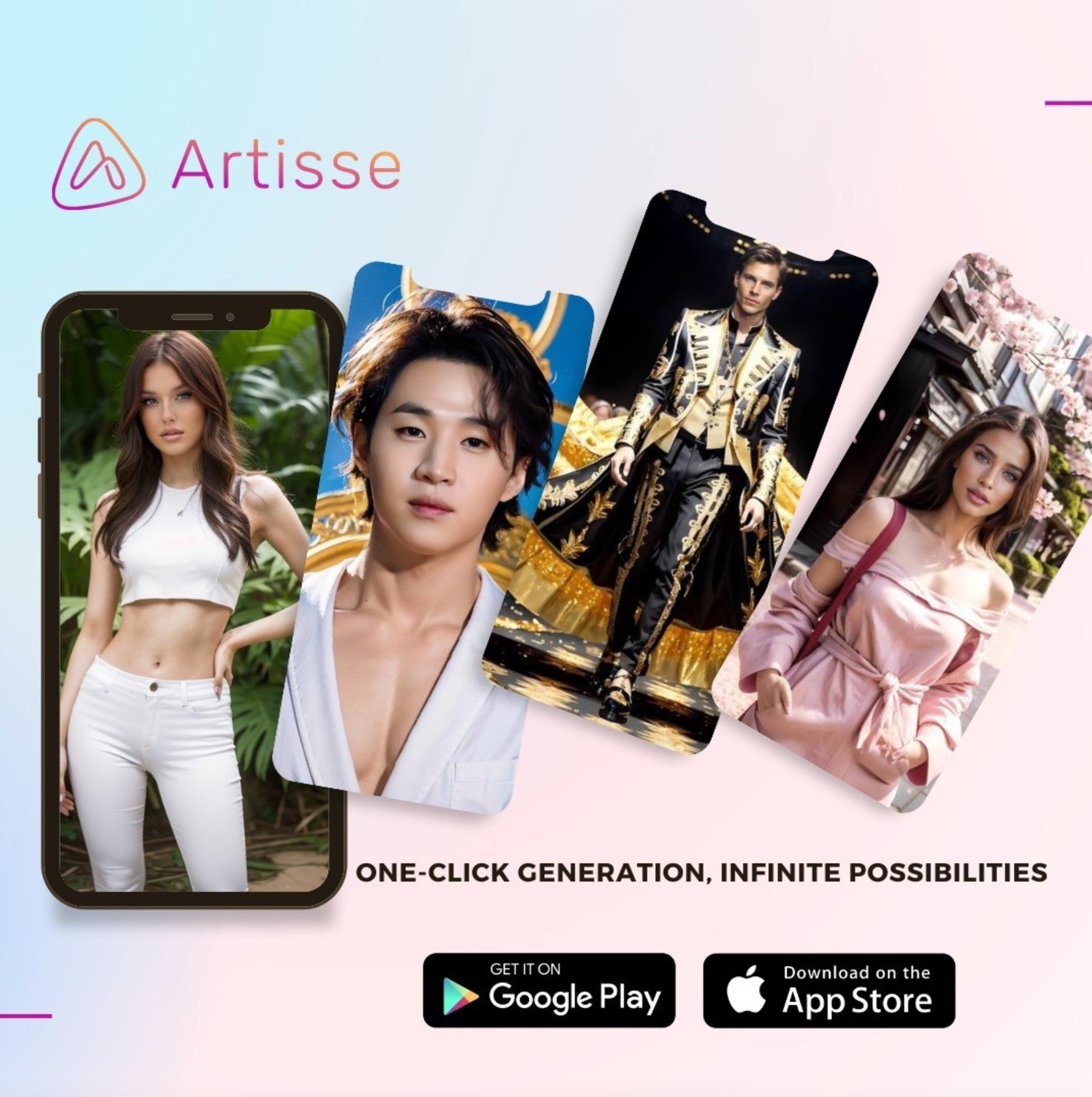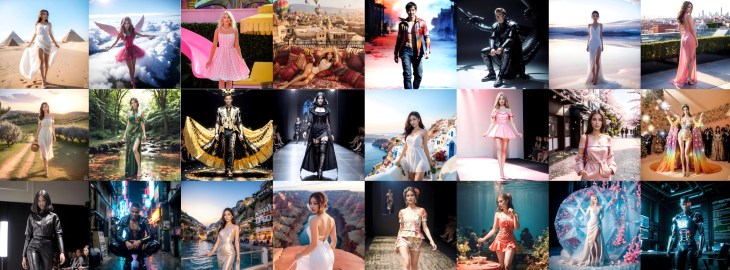Artisse is the latest AI photo creation app to challenge the recently viral app Remini and others by allowing users to generate AI photos of themselves by first uploading a series of selfies. However, Artisee claims to improve on the current crop of AI photo apps by offering a broader range of both input and output capability and more realism in the resulting photos, even if set in fantastical realms.
Similar to other apps of its nature, users will upload 15 images of themselves to train the AI on their images. When the upload is complete, you can use either a text prompt or an image prompt to generate new AI photos of yourself. With the latter, you can opt to choose from a template or upload your own reference photo instead to generate photos of yourself in various settings, postures, and styles. When using templates, you can also modify images by tapping buttons to change the style or by adding additional prompts.
Under the hood, the company says it’s using its own property model but has incorporated best practices and elements from existing open source models and tools.

Image Credits: Artisse
The company says it’s working to make the app more flexible in terms of diversity of body shape and skin tones — an area where other AI photo apps have fallen short, including Remini where many women complained they had been made much skinnier than in real life, or with larger chests. Artisse faces similar challenges — particularly if you use a reference image of a thinner person.
The bootstrapped startup was founded by William Wu, who previously worked in investment and strategy with roles at McKinsey & Co. and Oaktree Capital. He said he was inspired to work on an AI app after seeing how many people had “perfect” photos of themselves posted to Instagram or on their dating profiles.
“But to be able to create these types of photos, you need to be privileged or to be able to afford it, a lot of patience and time, or a very high level of expertise,” Wu tells TechCrunch. For example, people would need to know how to take the photo or how to pose well, he explains. “With the arrival of AI, our goal is to make perfect personal photography accessible to everyone, no matter your background situation, or experience level. Everyone should be able to create perfect photos of themselves,” Wu says.
In practice, the app takes much longer to process the selfies and train its AI than others — roughly 30 to 40 minutes. The AI images, meanwhile, take minutes to generate. This system, claims Wu, beats the competition in terms of the realism produced. In the app, users can also browse for inspiration from photos of either men or women in a variety of styles, poses, and backgrounds or they can upload a photo from their own library.
“Remini, which has a popular AI feature, has relatively low-quality photos, low input flexibility,” Wu notes, adding that its app requires users to select from a set of templates. Plus, he adds, it has low output flexibility as it involves mostly single-colored backgrounds.
Artisse currently offers the first 25 photos for free, then charges around 20 cents per photo afterward. It plans to later launch a subscription model in the next release that will also include HD and sizing features. For B2B clients, Artisse is also offering a full end-to-end consulting style service, including model selection, image generation, and post-production work, which is priced based on time and later involved.
The app is a product from Hong Kong–based Mumu Labs and is currently bootstrapped, Wu says. But he notes the startup is in negotiations on a term sheet with a U.K.-based VC and in discussions with others.
Artisse is available on both iOS and Android, where it’s aiming to reach the roughly 800 million users of photo-editing apps. The company plans to release on the web next month.
